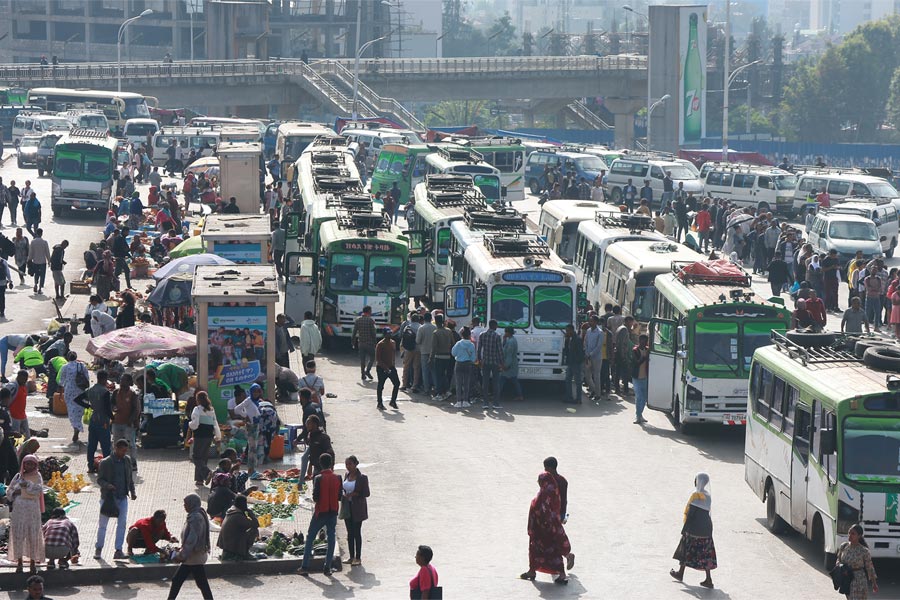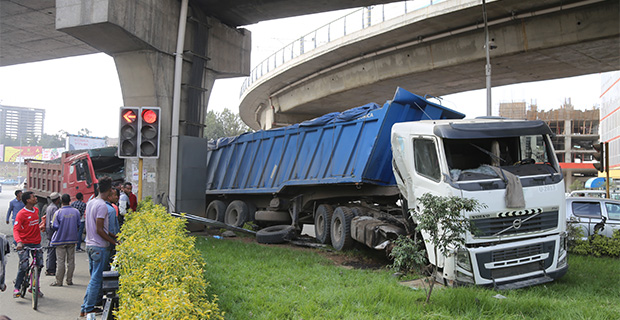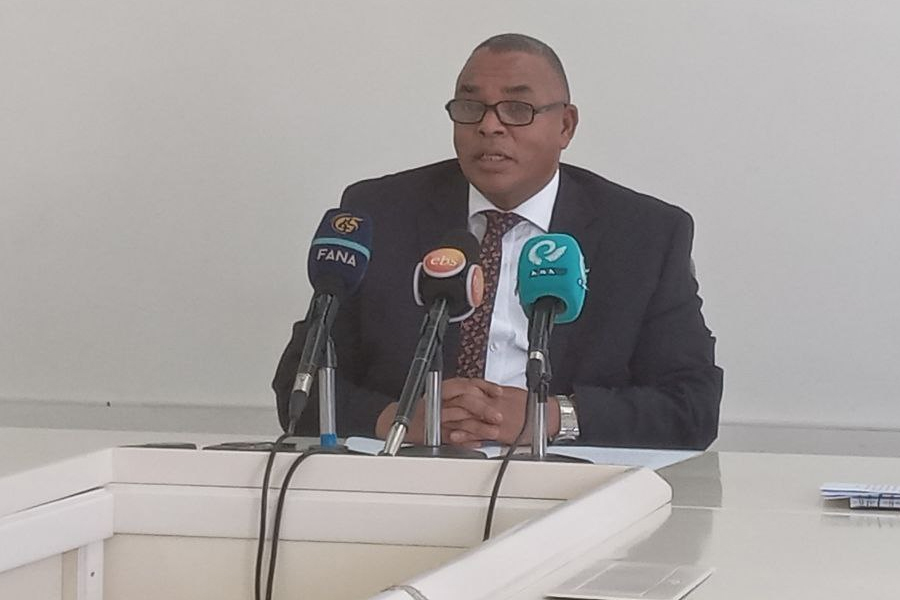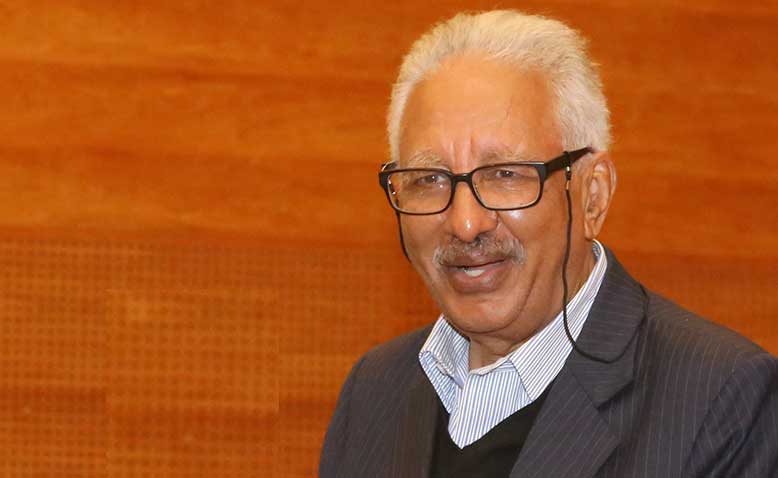
Fortune News | Feb 24,2024
Nov 23 , 2019
Low-income countries like Ethiopia are responsible for 13pc of deaths while only having 1pc of the world’s vehicles, while high income countries that account for 40pc of the world’s vehicles only suffer 7pc of road accident fatalities. There may be many factors that cannot be changed right away, but changing the attitude of drivers to value human life more than their vehicles will make a quick difference, writes HANNA HAILE.
 Low-income countries like Ethiopia are responsible for 13pc of deaths while only having 1pc of the world’s vehicles, while high income countries.
Low-income countries like Ethiopia are responsible for 13pc of deaths while only having 1pc of the world’s vehicles, while high income countries. The minibus taxi spun: everything moving in slow motion with broken glass flying everywhere. I am not sure how many people were injured. I was able to leave the damaged vehicle through the window, as the door was smashed shut. I stood there unable to fathom exactly what had happened. With my handbag clutched close, I walked away realising I could have lost my life in an Addis minibus taxi alongside 14 strangers. I walked home, spitting shards of glass.
This was four years ago, but the trauma stays with me. This was not the only time I have been in a car accident, but this was by far the closest to being fatal. My family has experienced multiple consequences of traffic accidents, and we are not an exception, just one of many. Devastation from vehicle accidents knocks on the doors of every household in Ethiopia.
The World Health Organization ranks the nation at 22nd in the world when comparing death rates to population. In analysis of leading causes of death in Ethiopia, deaths caused by traffic accidents rate higher than deaths related to HIV/AIDS. While the fatalities reported to statistical agencies may vary, the magnitude of deaths caused because of careless driving, which we see each and every day, is a staggering number.
Devastation from vehicle accidents knocks on the doors of every household in Ethiopia.
In slang terminology the red Sinotruck is satirically referred to as the red terror, comparing it to a campaign of terror in the 70s that cost many lives. It shows the scale of how many lives are lost at the hands of this truck model. Over the weekend, while passing by Lem Hotel, I witnessed a Sinotruck that had bulldozed through a small shop, disintegrating a wall, and halted in the living room of a family. I was not able to learn if anyone had lost their lives in the incident, but the devastation was serious.
The inability to understand the technology we hold in our hands is causing us to spiral out of control. In the way people drive in Addis Abeba, we see drivers flexing their privilege. The way drivers expect the roads to open up and everyone to accommodate their needs is exceedingly inappropriate. Drivers’ expectations that pedestrians should be running through zebra crossings instead of walking with dignity as is the right of citizens, is astounding.
The value drivers behind the wheel give to human life is much less than the value they put on their vehicle. Among the privileges of driving, there comes the responsibility to human life. Life is not something that should be taken for granted. Vehicle accidents around the world are the number one cause of death in the world for young adults 15-29. Our nation is losing productive citizens, homes are losing bread earners and sparks of joy dim from their loss.
Low-income countries like Ethiopia are responsible for 13pc of deaths while only having 1pc of the world’s vehicles, while high income countries.
Road safety is not only the responsibility of citizens but also of engineers that can design smarter roads, policy and rule of law that can be implemented appropriately. The safety of our streets is the responsibility of many sectors of our society. Road accidents come at a cost to the nation. It is money that can be used for social services that is being lost. Low-income countries like ours take on 13pc of deaths while only having 1pc of the world’s vehicles, while high income counties that account for 40pc of the world’s vehicles only suffer 7pc of road accident fatalities.
There is much our nation can learn from others in policy and implementation of road safety rules that protect all citizens. We have run few successful campaigns like safety belt regulations and the ban on cell phone usage while driving. The close monitoring of these safety measures has shown strong success. In the last few years traffic police have yo-yoed between implementation and monitoring of many policies like drunk driving and speed limit checks among others. The consistency at which campaigns are run, advocacy is made and the regularity of monitoring determine the rate at which we can save lives.
Each day, drivers lose their lives or endanger others to try to save a few seconds. The traffic in Addis Abeba is heavy, so quick turns to make up five minutes could be the difference between life and death. And those given the responsibility of transporting citizens in buses, minibus taxis and others forms of public transportation should feel the weight of the responsibility of the lives of others.
In many minibus taxis when it is being driven recklessly, the passengers whisper among one another, “If we tell him to drive slower, it will trigger him to be even worse.” This observation does not come from nowhere; it is from years of experience of being in similar situations. So they stay silent while some try and plead with the driver calmly. Citizens only have one thing in mind, to return home safely.
PUBLISHED ON
Nov 23,2019 [ VOL
20 , NO
1021]


Fortune News | Feb 24,2024

Radar | Jan 12,2019

Radar | Jul 24,2021

Sunday with Eden | Oct 30,2021

View From Arada | May 25,2024

Fortune News | Sep 21,2019

Radar | Jan 31,2021

Fortune News | Jun 27,2020

Radar | Nov 11,2023

Obituary | Feb 29,2020

Dec 22 , 2024 . By TIZITA SHEWAFERAW
Charged with transforming colossal state-owned enterprises into modern and competitiv...

Aug 18 , 2024 . By AKSAH ITALO
Although predictable Yonas Zerihun's job in the ride-hailing service is not immune to...

Jul 28 , 2024 . By TIZITA SHEWAFERAW
Unhabitual, perhaps too many, Samuel Gebreyohannes, 38, used to occasionally enjoy a couple of beers at breakfast. However, he recently swit...

Jul 13 , 2024 . By AKSAH ITALO
Investors who rely on tractors, trucks, and field vehicles for commuting, transporting commodities, and f...

Sep 13 , 2025
At its launch in Nairobi two years ago, the Africa Climate Summit was billed as the f...

Sep 6 , 2025
The dawn of a new year is more than a simple turning of the calendar. It is a moment...

Aug 30 , 2025
For Germans, Otto von Bismarck is first remembered as the architect of a unified nati...

Aug 23 , 2025
Banks have a new obsession. After decades chasing deposits and, more recently, digita...